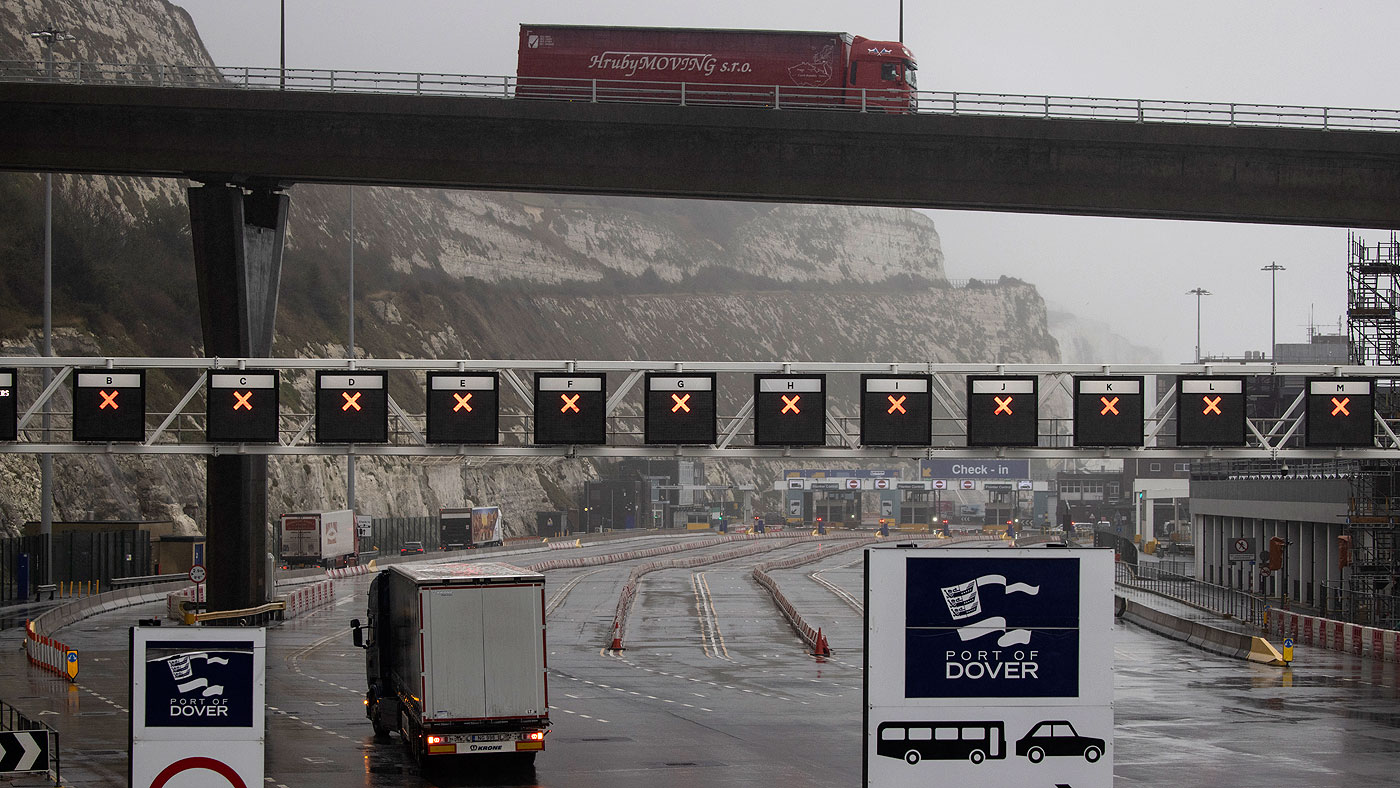What the closure of Calais means for Brexit
France’s ban on all arrivals from the UK may be temporary - but EU-wide rules are likely to follow

A free daily email with the biggest news stories of the day – and the best features from TheWeek.com
You are now subscribed
Your newsletter sign-up was successful
The new and highly contagious variant of Covid-19 is not only a threat to public health - but also a political challenge for the UK government as it seeks to finalise a trade deal with the EU.
Negotiators missed another deadline for agreement yesterday as they struggled to resolve outstanding differences about fishing quotas and support for industry.
But the travel ban imposed on British goods and passengers imposed by France and several other European countries may complicate the final phase of talks.
The Week
Escape your echo chamber. Get the facts behind the news, plus analysis from multiple perspectives.

Sign up for The Week's Free Newsletters
From our morning news briefing to a weekly Good News Newsletter, get the best of The Week delivered directly to your inbox.
From our morning news briefing to a weekly Good News Newsletter, get the best of The Week delivered directly to your inbox.
“The timing of the ports shutdown could not be worse for the government because it comes less than two weeks before the end of the ‘standstill’ transition period and just days before Christmas,” the Daily Mail reports. The closure of the Calais - and the resulting logjam of lorries in Kent - will have a “devastating effect” on food deliveries, transport executives told The Guardian.
Brexit stockpiling, Christmas deliveries, Covid restrictions and migrant checks on the French side meant that “cross-Channel freight was already under huge pressure”, the paper reports.
Transport Secretary Grant Shapps said France’s travel ban, implemented last night with just a few hours notice, was “surprising” and would cause “significant disruption”. He warned hauliers and other drivers to stay away from Channel ports.
Although the French restrictions are scheduled to last for just 48 hours, “the EU is planning to block all passenger traffic to and from England”, according to the German newspaper Bild.
A free daily email with the biggest news stories of the day – and the best features from TheWeek.com
Political consequences
Politicians on both sides of the argument said the government should rethink its Brexit strategy in response to the disruption.
Nigel Farage “accused the EU of trying to take advantage of the mutant coronavirus crisis to force the UK to sign a ‘bad’ post-Brexit trade deal”, the Daily Mail reports. He said Britain should abandon talks and “walk away” from the EU.
Keir Starmer told ITV political correspondent Paul Brand that he does “not want an extension to the transition period” despite the increasing Covid crisis, adding that Labour’s position remains that the prime minister should “get on and get a deal”.
Nicola Sturgeon, meanwhile, said it would be “unconscionable” to risk a no-deal Brexit on top of the threat posed by the virus and called for an extension to the transition period.
Holden Frith is The Week’s digital director. He also makes regular appearances on “The Week Unwrapped”, speaking about subjects as diverse as vaccine development and bionic bomb-sniffing locusts. He joined The Week in 2013, spending five years editing the magazine’s website. Before that, he was deputy digital editor at The Sunday Times. He has also been TheTimes.co.uk’s technology editor and the launch editor of Wired magazine’s UK website. Holden has worked in journalism for nearly two decades, having started his professional career while completing an English literature degree at Cambridge University. He followed that with a master’s degree in journalism from Northwestern University in Chicago. A keen photographer, he also writes travel features whenever he gets the chance.